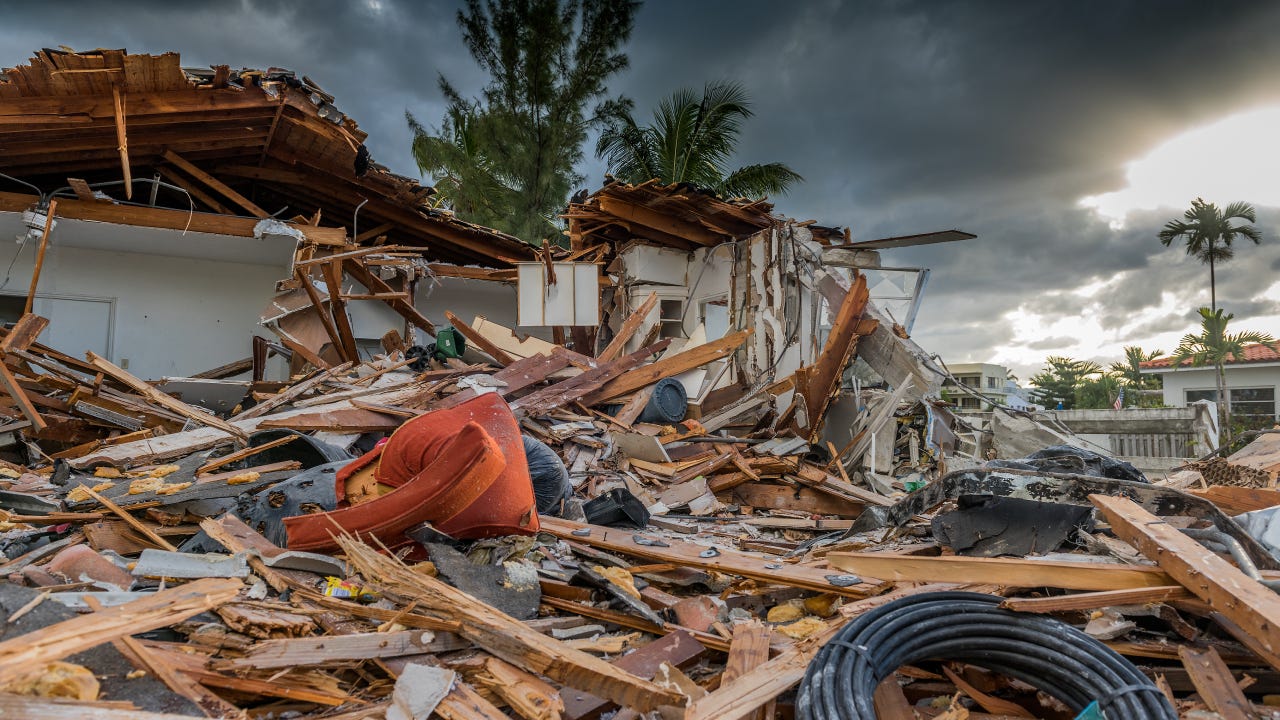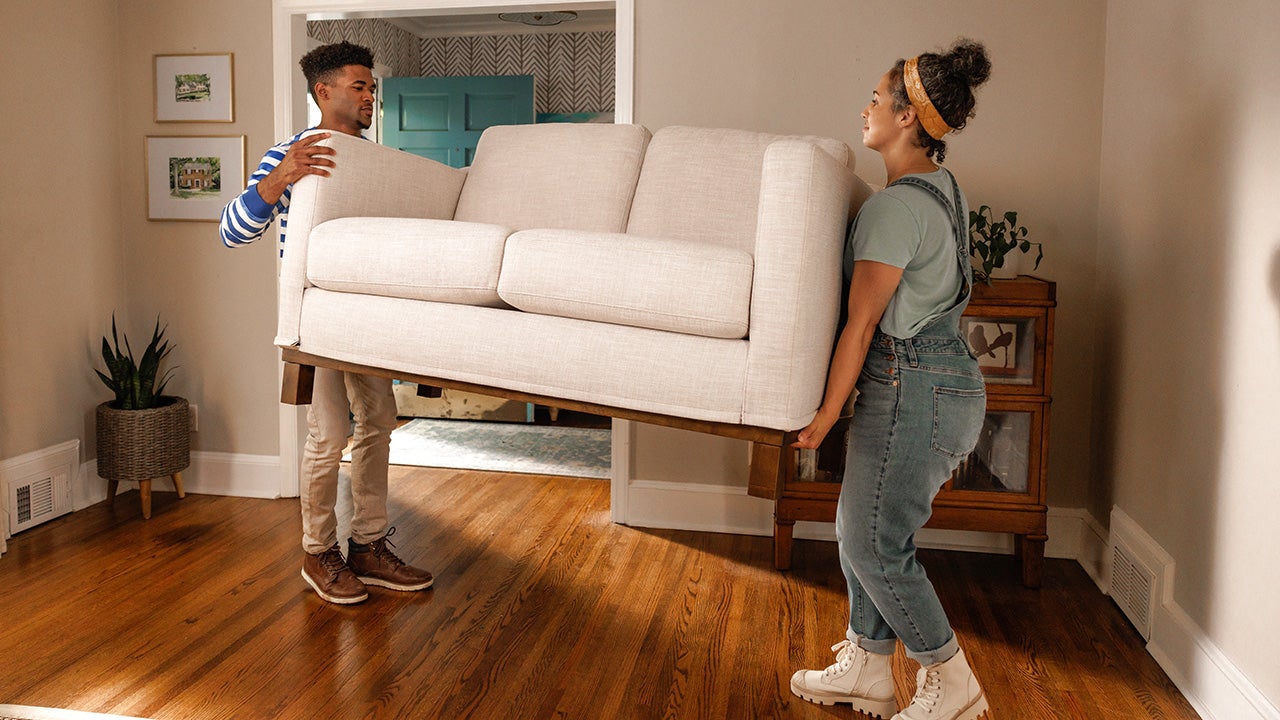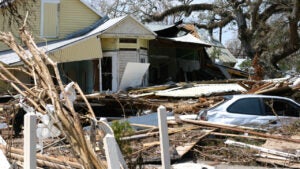How to prepare your home for hurricane season

Preparing your home for a hurricane could be a wise decision, since the National Oceanic and Atmospheric Administration (NOAA) predicts a 60 percent chance of an above-normal hurricane season for 2025. To help you get started, Bankrate’s insurance editorial team put together a simple strategy for protecting your property. We’ll also explain the types of insurance coverage you may consider and what to do if you need to file a claim caused by hurricane damage.
What to do to prepare for a hurricane
Knowing how to prepare your house for a hurricane could help lessen the risk of damage or injuries resulting from a storm. As the phrase implies, hurricane preparation is about planning ahead. Review the following steps to make a plan to prepare yourself, your loved ones and your home for hurricane season.
Read more: Does homeowners insurance cover hurricane damage?
Review your insurance policy
Take the time to understand what your homeowners insurance policy covers and what it does not before you file a claim. Many policies have exclusions. For instance, standard policies do not cover flood damage. You may need to purchase endorsements or separate policies to bolster your coverage.
Oftentimes, you will also have a hurricane deductible that is separate from the deductible you are responsible for paying in the event of a standard claim. Contacting your home insurance company or agent to review your policy prior to hurricane season is a good practice. That way, if you find that you need additional coverage, you’ll have time to shop around and secure an appropriate policy.
Secure and seal your roof
Roof damage is common in hurricanes, since roofs are exposed to the ferocious wind and driving rain of the storms. After a hurricane, you may find that your roof is missing shingles or decking. You may discover leaks inside your home or notice that your roof is sagging. Water can damage the structure of your roof, increasing the chances of a leak or roof collapse. Before hurricane season starts, you might have your roof inspected. You may want to have truss tie-downs, also known as hurricane straps, installed to fortify your roof against high winds. You may also want to:
- Check the gable bracing and replace any loose or missing braces.
- Search for and seal cracks and other areas that are at risk for leaks.
- Replace, nail or caulk loose shingles to reduce the chances they will blow away during gale-force winds, exposing your roof to rain and water damage.
Taking the time to check on the roof is one of the best ways for people to prepare their homes for a hurricane.
Shield your doors and windows
Doors and windows are at greater risk of damage than other parts of a home during high winds. One common cause of damage is flying projectiles, such as patio furniture or broken tree limbs. One of the most effective ways to reduce the risk of storm damage to doors and windows is to install storm shutters before hurricane season begins. If storm shutters are outside your budget, affixing sheets of plywood over your windows and doors before a hurricane could help to seal these vulnerable areas.
Secure outdoor structures and furnishings or bring them inside
To reduce the chances of losing them due to high winds, make sure structures such as carports and tool sheds are well-anchored. Patio furniture, potted plants, barbeque grills and other items should be brought inside or otherwise anchored. Left loose, they could become projectiles during the storm and could damage your home or the homes of others.
Prepare an emergency kit
The aftermath of a hurricane presents different considerations than during the storm itself. Your electricity and water might be off for days. In September 2022, Hurricane Ian caused over 9 million electricity outages across the Southeastern U.S. In some areas, the power was out for over a week. Having an emergency kit can help to prepare you for the aftermath of a hurricane, including for the possibility of an extended period of time without electricity or running water. Emergency kits should include:
- A radio
- Flashlight(s)
- Spare batteries
- A charged cell phone and back-up battery
- Wrench or pliers to turn utilities, such as your gas line, off
- A fire extinguisher
- Matches or a lighter in a waterproof bag
- Important documents in a waterproof bag
- Cash (in case ATM machines are down and banks are closed)
- First aid items, such as aspirin, bandages and antibiotic ointment
- Prescription medications
- Mosquito repellent
- Bottled water and non-perishable foods
- Pet food and medication
- Extra gasoline if you have a gas-powered generator
- Full tank of gas in your car in case the electricity is out at your local gas stations
You may also want to consider how you will cook if the power is out or plan meals that do not need cooking. Since many restaurants may be out of power after a storm, it’s best not to rely on the possibility of takeout. Instead, consider using your barbeque grill (if you have one). You may want to update your hurricane preparedness kit before the start of every hurricane season and keep the items in a safe, dry place.
Make an evacuation plan
If the local authorities advise it, you may need to evacuate from your property during a hurricane. Having an evacuation plan is crucial. Your plan might include where you will go, what you will take, how you will get there and how to ensure family members are safe.If there is a hurricane warning for your area, make sure you are prepared to evacuate. It is generally better to have a plan and not need it than to be caught unprepared. Do not forget to include your pets in the evacuation plan; if your house is no longer safe for you, it likely is not safe for them.
Consider purchasing flood insurance
Flooding is generally not covered by a standard homeowners insurance policy. If you live in a hurricane zone, flood insurance may be a smart choice. The average cost of flood insurance is about $800 per year. Be aware, however, that flood insurance costs vary even within states. If you are in an area that is especially prone to flooding, you may pay more than your state’s average. Similarly, if your home is elevated or has other flood-mitigation measures in place, you may pay less. A flood insurance policy should not (and cannot) be a last-minute purchase. Generally, there is a 30-day waiting period before your policy goes into effect after purchasing coverage through the National Flood Insurance Program (NFIP). This waiting period prevents people from buying a policy to cover a specific incoming storm. Additionally, insurance companies will typically issue a moratorium in advance of a hurricane. A moratorium halts the sale of new policies or puts a restriction on adding additional coverage. For instance, if a hurricane is on the horizon, your homeowners insurance company may restrict you from lowering your hurricane deductible until the storm has passed. To put it simply, you can think of flood insurance waiting periods and insurance moratoriums as a way for insurance companies to avoid paying for the “preexisting condition” of a forecasted hurricane.
Preparing your mobile home for a hurricane
Hurricane preparation for a mobile home is not so different from how you’d prepare a traditional house. As a first step, you’ll want to ensure the integrity of your mobile home’s anchors and tie-downs. Boarding up windows with plywood, affixing hurricane straps to your roof, reviewing your mobile home insurance policy for coverage gaps and making a hurricane emergency kit are all also proactive steps you can take before a storm to help minimize damage. The main difference between preparing a mobile home and a traditional house is how you tackle the interior.
Mobile homes typically have thinner walls and are more susceptible to damage from hurricane-force winds. You may consider locking up your cupboards with a child lock to prevent them from flying open and having their contents smash to the floor. If you have any valuables, you could put them in a box on the floor to keep them from falling off shelves. It’s also a good idea to disengage your water and fuel lines before a storm rolls in to prevent a fire or a plumbing-related flood.
Above all else, listen to your local authorities and adhere to evacuation warnings. While you may be able to ride out a more minor hurricane in a mobile home, it is one of the last places you want to be in a major hurricane. Even if you have a newer manufactured home built to withstand high wind speeds, it’s best to take shelter in a more solid structure (like a nearby motel) for the duration of the storm.
Hurricane season is typically June 1 until November 30. NOAA’s Climate Prediction Center predicts “above-normal” hurricane activity for 2025. The Center estimates the Atlantic basin could experience six to 10 hurricanes this year, with three to five becoming major hurricanes.Bankrate’s insurance editorial team is closely following hurricane activity in the Atlantic Ocean and the Gulf of Mexico. Here are some key facts about the 2025 hurricane season so far:
- The continued El Niño/Southern Oscillation pattern along with warmer than average ocean temperatures and West African Monsoon activity all contribute to the possibility for increased hurricane activity.
- In 2025, NOAA will upgrade its Hurricane Analysis and Forecast System and provide more advanced warning for tropical cyclones, giving more time for preparation and emergency response.
- Home insurance policies typically do not cover flood damage caused by hurricanes and most companies place a moratorium on purchasing coverage before a big storm. To be prepared, you may want to check your coverage and adjust coverage limits in advance of hurricane season.
Hurricane preparation resources
Bankrate’s hurricane resources aim to help you understand how your home insurance coverage may financially protect you from storm damage. The following guides also provide tips to prepare your home for a storm and resources on how to file a claim for hurricane-related damage.
- How to avoid hurricane damage
- Does car insurance cover hurricane damage?
- What to do with a damaged car after a hurricane
- Using home insurance for disaster assistance
Hurricane safety tips
Before hurricane season starts, you might want to complete a check of your entire home. You may want to look for holes, gaps and openings and fill them. You might tighten screws and replace any damaged brackets or braces. Essentially, you want your home to be in the best shape possible. If you do not feel up to completing a comprehensive review of your home’s hurricane preparedness, a licensed contractor should be able to help you. A few final preparation tips:
- Do not tape windows or glass doors. Placing a tape X on glass surfaces will not keep them from shattering and is a waste of valuable time, according to NOAA.
- Prepare for high-rise pressure changes. If you live in a high-rise building, be aware that wind pressure increases with height.
- Trim your trees. You may want to cut back your trees so they do not hit your house, and do it early enough, so the trimmings can be cleared away before a hurricane. Otherwise, they could become projectiles in a major storm.
- Get some sandbags. Most municipalities will give away sandbags a few days before the storm makes landfall. Placing sandbags in front of your doors can help keep water out of your home.
- Consider investing in a generator in case the power goes out. It can extend the life of your refrigerated and frozen foods, allow you to charge your devices or give you the option to run a fan or air conditioner for comfort.
- Fill your bathtub with water. If your power goes out, your water pump will also stop working. That means those on well water may want to fill their bathtubs with water before the storm hits. Although this water won’t be potable, you can use it for flushing the toilet and general cleaning.
- Clean your house and wash your sheets. It may be days or weeks before your power is restored after a hurricane. A clean house and freshly washed sheets can make living in a hot, humid house a little more tolerable (and cut back on any odors, too).
Giving yourself time to prepare for hurricane season is critical. Taking steps to secure your home and form a plan for yourself and your family can make a huge difference in what you have to handle in the aftermath of a storm. Knowing the steps you need to take to safeguard your home and having the items that will help you navigate a storm safely will help you get through the hurricane season year after year.
Frequently asked questions
Why we ask for feedback Your feedback helps us improve our content and services. It takes less than a minute to complete.
Your responses are anonymous and will only be used for improving our website.
You may also like

Does homeowners insurance cover tsunami damage?

How to buy homeowners insurance

How to protect your home from wildfire

You have hurricane damage, now what?: Steps to take after a hurricane


